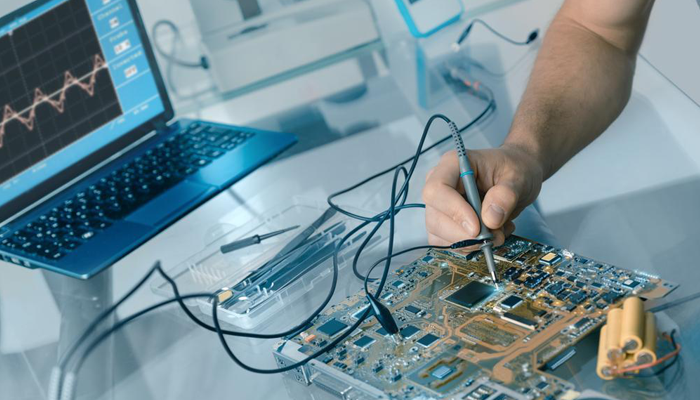IMDEA Networks

Forward thinking 5G and beyond research at IMDEA Networks receives major backing
Wireless Networking Research Group awarded two national Juan de la Cierva and two FPU Grants. Group promotes a radical rethinking of wireless networking in the millimeter wave band
14 January 2019

The Wireless Networking Group at IMDEA Networks, led by the Institute’s Research Director Dr. Joerg Widmer, has received major financial backing to pursue a new communication paradigm for future very high speed wireless networks. The Madrid-based team has set itself to explore communication in the extremely high frequency part of the radio spectrum, the millimeter wave band (mm-wave) from 30 to 300GHz, to vastly increase data rates of future wireless and mobile networks.
The Spanish Ministry of Science, Innovation and Universities, through the Juan de la Cierva Training Grants program 2017, and the Spanish Ministry of Education, Culture and Sports, through the so-called “FPU” program, a series of grants to provide professional training to university lecturers, have awarded a total of four grants (two each) to members of Dr. Widmer’s team.
Dr. Widmer, himself an ERC Consolidator Grantee, and his research team are pushing the boundaries of wireless communications to enable a new generation of wireless networks that can support the extremely high demands of fifth-generation cellular wireless (5G) and beyond networks: low latency, high reliability, extremely high data rate, energy saving, cost reduction, higher system capacity and massive device connectivity.
Dr. Claudio Fiandrino, a Post-Doc Researcher, is one of the Juan de la Cierva grant awardees. The grant will fund his cutting-edge research on ultra-reliable and low latency communications (URLLC), which is the most innovative service brought in by 5G. URLL Communications find applicability not only in services such as intelligent transportation systems and autonomous vehicles, tactile Internet 3D immersive applications and automation, but are also considered an enabler for a set of yet-unknown applications. Claudio is currently looking at solutions that augment reliability while reducing latency by bringing applications and services at close distance to the end-user and is already working on the experimental phase.
Dr. Amanda García-García, a Research Engineer, is the other recipient of a Juan de la Cierva grant. Her work will focus on improving the operation of 5G and millimeter-wave networks that go beyond it, as well as WLANs such as the standard IEEE 802.11ad/ay. These technologies enable a new generation of wireless networks with very high data throughput. The 60 GHz signal that defines the millimeter-wavelength cannot typically penetrate walls but can propagate off reflections from walls, ceilings, floors and objects using beamforming built into the system. Amanda will look for ways to improve mm-waves networks in order to increase coverage and signal quality.
To the above funding have been added two FPU grants to support the doctoral and research training of outstanding PhD students Dolores Garcia Marti and Joan Palacios Beltran. Furthermore, Dr. Antonio Fernández Anta, a Research Professor and the leader of the Global Computing Group at IMDEA Networks who co-supervises Amanda’s and Dolores’ work, will also be involved in this major research undertaking. Altogether they hope to bring a step nearer the promise of future Internet communications, characterized by the Internet of Things now close at hand, and leading up to the Internet of Everything, technologically a few steps ahead.
About Claudio Fiandrino
Dr. Claudio Fiandrino joined the Wireless Networking Group at IMDEA Networks as a postdoctoral researcher in December 2016, right after having obtained his PhD degree from the University of Luxembourg. He received his Bachelor’s degree in Ingegneria Telematica in 2010 and a Master’s degree in Computer and Communication Networks Engineering in 2012, both from Politecnico di Torino (Italy). Claudio received the Best Paper Awards in IEEE Cloudnet 2016 and in ACM WiNTECH 2018. His primary research interests include ultra-reliable and low-latency communications and multi-access edge/fog computing.
About Amanda García-García
Dr. Amanda García-García received her Bachelor’s degree in Telecommunication Engineer in 2011 and a Master’s degree in Telecommunication Technologies and Systems in 2013, both from the Universidad Politécnica de Madrid (Spain). She obtained her Ph.D. degree from the same university in 2016. So far her primary research interest has been the study of new telecommunication devices from four perspectives, namely, electronics, optics, chemistry, and physics. She did two research stays at universities of France and Italy as a member of the European Cooperation in Science and Technology (COST) framework. She joined IMDEA Networks in March 2017.
More info
- Wireless Networking Group [Joerg Widmer]
- Global Computing Group [Antonio Fernández Anta]
- Personal websites of the researchers mentioned:


Recent Comments